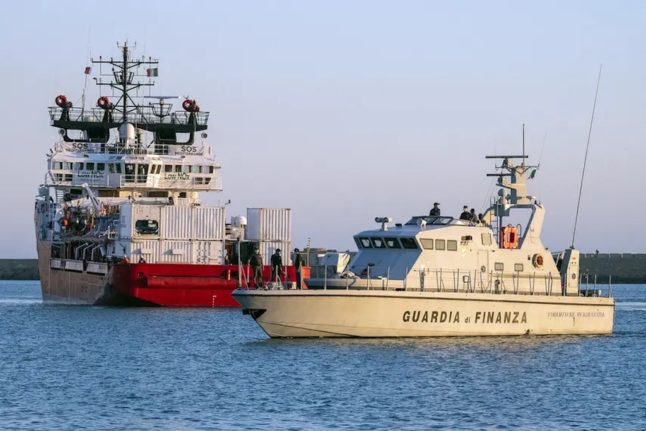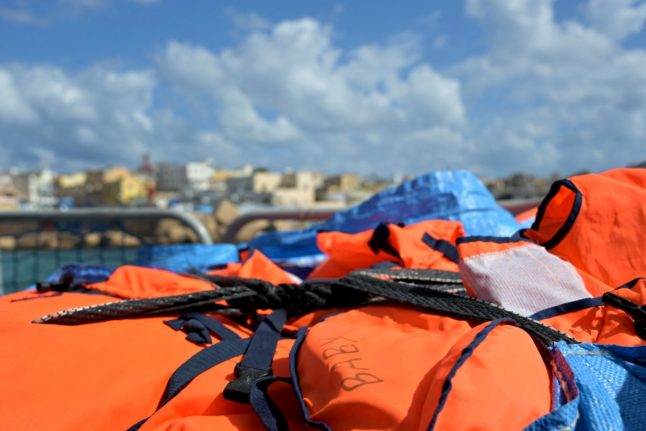Tens of thousands of migrants rescued in the Mediterranean will be sent to purpose-built centres in Albania while Italy examines their asylum requests, the Italian government announced Monday.
The deal with Albania, which is not part of the European Union, follows a meeting in Rome between Albania’s Prime Minister Edi Rama and Italy’s far-right Prime Minister Giorgia Meloni, who won elections last year after
vowing to stop illegal migration to Italy.
Two structures able to accommodate up to 3,000 people at a time will be set up for “speedy processing of asylum applications or possible repatriation” of “migrants saved at sea”, Meloni’s office said in a statement.
READ ALSO: EXPLAINED: What’s behind Italy’s soaring number of migrant arrivals?
The centres will be built, at Italy’s expense, at the port of Shengjin and the Gjader area in northwest Albania, and will be designed to accommodate some 39,000 people a year, it said.
Minors, pregnant women and “vulnerable people” will not be sent to the centres, Meloni told reporters following her meeting with Rama.
Italy will have legal jurisdiction over the centres, which are expected to be up and running “by spring 2024”, her office said.
The Shengjin centre will be used to identify and screen new arrivals, while migrants destined for repatriation will be sent on to Gjader.
In the statement announcing the deal, Rome emphasised the importance of Italy’s trade with Albania, and offered its support for that country’s hopes of joining the EU.
Despite Meloni’s vows to stop boat crossings from North Africa to Italy, over 145,000 people have landed on its shores so far this year, compared to 88,000 people in the same period last year, official data shows.
Opposition lawmaker and Green party leader Angelo Bonelli said the deal was a “blatant violation of conventions and international law”.
READ ALSO: Italian PM Meloni blasts judge who rejected ‘unconstitutional’ anti-migrant law
The government was “outsourcing its responsibilities, with the risk of creating detention camps that may not ensure adequate standards of reception and respect for human dignity”, he said in a note.



 Please whitelist us to continue reading.
Please whitelist us to continue reading.
Member comments